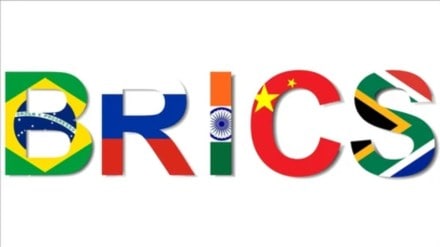Prime Minister Narendra Modi is set to depart for Kazan tomorrow to attend the 16th BRICS Summit, which will focus on strengthening multilateralism amid global challenges. The summit, beginning on October 22, is significant due to the recent expansion of BRICS and India’s pivotal role in driving key discussions. Alongside the main events, PM Modi is expected to engage in critical bilateral talks with Russia, China, Iran, South Africa, and other leaders, addressing pressing issues like regional security and energy cooperation.
India’s Strategic Role in BRICS
India’s participation in BRICS remains critical to its goals of promoting sustainable development, economic growth, and global governance reforms. Foreign Secretary Vikram Misri highlighted India’s significant contributions during a media briefing, noting, “India brings great value to BRICS, having played a vital role in shaping its efforts since its inception.” He added that India views BRICS as a vital platform to engage in global multi-polarity, helping shape a fairer and more inclusive international order.
The summit provides India with an opportunity to bolster its influence in shaping the global agenda, while also addressing pressing concerns like energy security, healthcare, and youth cooperation. Misri emphasized that BRICS plays a central role for India in tackling global challenges, making it a priority platform for the nation.
Summit’s Main Themes and Key Outcomes
The central theme of this year’s summit, “Strengthening Multilateralism for Just Global Development and Security,”reflects BRICS’ commitment to addressing global issues through collective action. With the recent expansion of the group, the Kazan Summit will focus on integrating the new members into existing cooperation frameworks.
According to Misri, the leaders will engage in two key sessions on October 23, a closed plenary in the morning and an open plenary in the afternoon. Discussions are expected to focus on deepening economic cooperation, fostering energy and food security, and enhancing collaboration in sectors such as healthcare. Misri also confirmed that the leaders would adopt the Kazan Declaration, a document aimed at guiding the future path of BRICS, which is still under negotiation.
Bilateral Engagements on the Sidelines
Apart from the main sessions, PM Modi is expected to hold bilateral talks with key leaders on the sidelines of the summit. High-level discussions with Russian President Vladimir Putin, Chinese President Xi Jinping, Iranian President Ebrahim Raisi, and South African President Cyril Ramaphosa are being planned, addressing regional issues, trade, and security.
These bilateral meetings are expected to be crucial, especially given the current global geopolitical tensions. India’s relations with Russia and Iran are particularly significant, as both nations play key roles in energy security and regional stability. The discussions with China may also be closely watched, as both nations look to navigate their complex relationship.
BRICS: A Growing Global Force
Since its formation in 2006, BRICS has expanded its influence in global governance. Originally comprising Brazil, Russia, India, and China, the group admitted South Africa in 2010, followed by the addition of four new members in 2023. The expansion reflects BRICS’ growing importance as a counterweight to traditional Western-dominated institutions and its aim to reshape the global order.
The Kazan Summit marks a crucial point for BRICS as it seeks to integrate these new members and establish stronger cooperative mechanisms. With major global challenges on the agenda and key declarations set to be made, this summit is expected to shape the group’s future trajectory.
